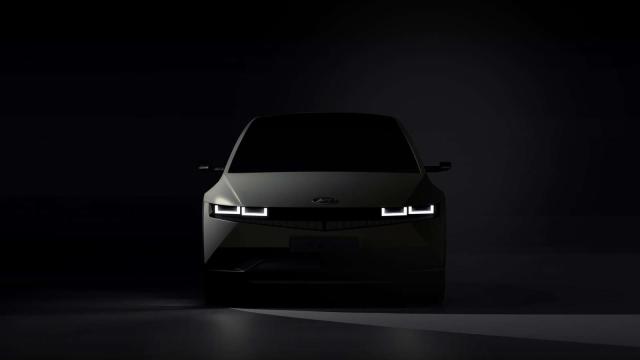If the Apple car is real — and it sounds like it will be — then we have years of rumours ahead of us. According to a new report from a longtime Apple analyst, it sounds like Apple has picked Hyundai’s E-GMP platform as the base for its upcoming electric car.
In his most recent note, Apple analyst Ming-Chi Kuo lended more credence to the rumours that Apple is planning to partner with Hyundai for the production of its vehicle. Kuo said Apple has picked Hyundai’s E-GMP platform as the chassis for the Apple car.
The E-GMP platform, which was announced late last year, is the core architecture for Hyundai’s next-gen battery electric vehicles (BEVs), including the next version of Hyundai Ioniq 5 and Kia’s “first dedicated BEV,” which is slated for a reveal sometime later this year.
Unlike its previous chassis, which was primarily intended for use with internal combustion engine vehicles, Hyundai says the E-GMP platform was designed exclusively for BEVs and offers increased modularity and safety while also trying to maximise performance, driving range, and interior room for passengers and luggage. And while some of these specs are sure to change depending on the specific vehicle, Hyundai claims high-performance cars based on the E-GMP platform could go from 0 to 97 km/h in less than 3.5 seconds, with top speeds of around 257 km/h.
When it comes to range, Hyundai says the E-GMP platform can deliver more than 499 km on a single charge, while its new charging system goes up to 350 kW, allowing E-GMP-based vehicles to recharge up to 80% battery in just 18 minutes (assuming you have a compatible charging station).
Other notable features on the E-GMP include support for bi-directional charging, which would allow a car to discharge electricity to power other large gadgets like an air conditioner or TV, support for both rear-wheel and all-wheel drive configurations with optional dual motors, and what Hyundai claims is the world’s first mass-produced integrated drive axle.
But perhaps the most important part for Apple is that the E-GMP platform is reportedly very modular and was designed to “enable rapid and flexible development depending on customer needs,” which would be very attractive to Apple. The company would be able to tweak the E-GMP platform to better suit its car design vision.
However, don’t expect to see the Apple Car anytime soon. According to Kuo (and reported by 9to5Mac):
“We predict that Apple will launch the Apple Car in 2025 at the earliest. The new iPhone takes about 18–24 months from initial specification definition to mass production based on experience. Given the longer development time, higher validation requirements, more complicated supply chain management, and very different sales/after-sales service channels for the automobiles, we believe that Apple, which lacks car building experience, is already on a tight schedule if it wants to launch the Apple Car in 2025.”
Furthermore, with recent reports indicating that some Hyundai execs are still hesitant about partnering with Apple at all, there’s a chance Apple may have to look elsewhere to find a manufacturing partner for its long rumoured car.
Amidst the barrage of Apple car rumours and reports, AppleInsider recently detailed a trio of new Apple patents that would allow its car to intelligently recognise and respond to hand signals from traffic personnel, a new active suspension system designed to increase comfort and handling, and a “retroreflector” engineered to help improve the performance of LiDAR, radar and traditional cameras.
It seems pretty clear that Apple is working on plans for an electric car of some sort, but it’s going to be a while until we see a more concrete picture of what the Apple Car — Car+? Car Pro Max? — or whatever it ends up being called will actually look like.
